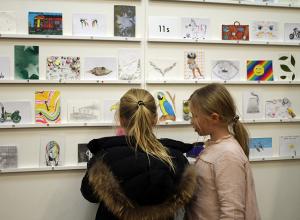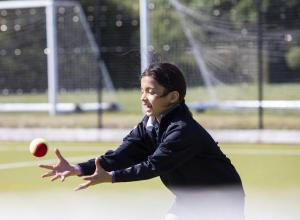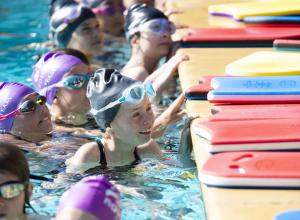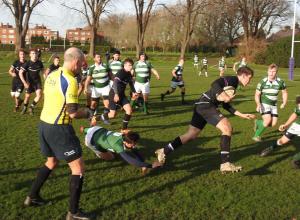
Does punishing bad behaviour at school really change things or is rehabilitation a better way forward? Andy Woodward considers a tricky conundrum
Retribution or rehabilitation? When it comes to justice and the UK’s prison system, everyone tends to have an instinctive preference. Should we reform or should we punish and, if both, on which side should the greater onus lie?
The same debate exists to some extent both in teaching and in parenting. As a school, necessity perhaps forces us towards the latter option more than we would like. In our Senior School (Years 9-11) of 300+ pupils, and amid a teacher’s packed timetable (I’m well aware that we’re relatively well off in both measures compared to many other secondary schools!), there is often realistically only time to give the detention, without the extended reflective chat that might make it more worthwhile and formative for the child. I fear that sanctions, and the promise of them, often exist more as a deterrent than a corrective, and once a pupil loses the fear of them, their value can decline.
I fear that sanctions, and the promise of them, often exist more as a deterrent than a corrective, and once a pupil loses the fear of them, their value can decline.
Andy Woodward, Head of Harrodian Senior School
For all this, I sense that parents – and the many (most!) Harrodians who do toe the line – like to know that errant pupils will be punished. There is reassurance in knowing that bad behaviour in school is addressed, has consequences and, if a parent’s own child suffers at the hands of another, that justice will be imposed. For this to be otherwise would imply lawlessness. Furthermore, behaviour points, and the various degrees of detention imposed along the way, make up a key element of the record for reference when assessing how the year has been going for a pupil.
Even so, in terms of us meaningfully impacting a child who is struggling to meet our standards of behaviour or organisation, there must be more to the story. Where punishment is a rare experience for a pupil, or where the sanction is very serious, it can indeed be the shock that helps them to vow ‘never again’. But, in truth, we know that punishments alone rarely inspire more than annoyance for the regularly punished. The performance of one lifted up by positive incentive and someone’s belief in them is very likely to exceed that of one beaten down by punishment and a raised voice.
To genuinely change a child requires first that we know them, spend time with them, inspire, interest or motivate them to be better.
To genuinely change a child requires first that we know them, spend time with them, inspire, interest or motivate them to be better. Sure, punishments show that we mean the rules that we set, but actual conversations – ideally set within the context of trust and respect – are far more likely to instil in a teenager the genuine desire to prove themselves and impress. I have often suggested to colleagues that time spent watching pupils play in sports fixtures or concerts, or running an extra-curricular club at lunchtime, can prove key to their behavioural management. It establishes the interest and common ground that might turn a relationship of ‘boring teacher’ vs ‘difficult child’ into one between two interconnected human beings.
I was also deeply convinced by one young speaker in our excellent recent series of Neurodiversity Week presentations who – when asked what school could have done better for him as someone with ADHD and dyslexia – said that they could less often have reacted to his inattention or fidgeting, neither of which were occurring by choice, with anger or punishment. I can see and understand why a frustrated teacher might respond in that way (indeed I have probably been the teacher), but it is hard to see what can really be gained by it, and easy to see what can be lost. Overall, while we can always do better, I am most relieved that we’ve moved on from the culture that still existed when I began teaching in 2003 – in which teachers would boast to the staff room about having made a child cry, or ensure they shouted loudly enough at a child to be overheard by impressed colleagues.
I am most relieved that we’ve moved on from the culture that still existed when I began teaching in 2003 when teachers would boast to the staff room about having made a child cry,
In parenting, the balance has clearly also shifted over time. When I was a child, parental punishment was often the beginning and end of the story. My friends and I were all, as far as I can recall, sometimes smacked or similarly physically disciplined. As we got older this hopefully diminished, but the shouting, grounding, imposing of chores, withholding of pocket money or enforced instruction of ‘go to your room!’ remained staples. It wasn’t necessarily always a bad thing… but fewer of my peers seem able to recall lengthy or involved conversations about the emotions, challenges and pressures that lay behind their sometimes errant behaviour. It was not the case for everyone – but for the most part we were not teenagers who expected to talk openly and candidly with our mums and dads. I hold little negative baggage regarding my own upbringing, but am nonetheless shocked to recall that when, at 16, I was upsettingly mugged and robbed by two older boys at a train station, it never even occurred to me to tell my parents about it. That story doesn’t concern misbehaviour (at least not my own!), but it hints at the limits of the understanding and support I gave them the opportunity of extending towards me alongside the occasional rollicking.
It was not the case for everyone – but for the most part we were not teenagers who expected to talk openly and candidly with our mums and dads.
Now it is my wife and I who are called to parent children on the cusp of adolescence, and to figure out the best way to steer them into becoming decent young people with a working moral compass. If our kids are ever mean or disrespectful, we are on it in a flash… but it has thus far been addressed with words rather than us having yet felt the need to seek out additional sanctions. Part of my psyche is judging me for that – accusing me of being ‘soft’ and fearing the consequences. But, in truth, the words – sometimes harsh words – seem to have done the job, given the relationships into which they have been spoken. Mere words have thus far produced rightful regret, tears, apology and attempted change where required. Sanctions would come into play if those things were not there or not genuine… we certainly reserve the right. But I still, in truth, suspect that further conversation and explanation are more likely to bring about breakthrough. After all, a child who – when confronted – genuinely feels they’ve done no wrong, cares little for the wrong they have done, or finds themself unable to change the wrong pattern, is not likely to feel otherwise because of a week deprived of their Nintendo Switch, even if we decide that’s a rightful part of our response. I fear there is no short cut that can replace the time, talk and role modelling taken to mould a virtuous young person. And we should truly fear the impact where those three things are provided instead by more malignant influences – whether via peer groups or online.
Unicef have produced a guide on ‘How to discipline your child the smart and healthy way’, stating that ‘shouting and hitting’ are proven not to work, producing only counter-productive ‘toxic stress’
Author..
Unicef have, in collaboration with Oxford University professor Lucie Cluver, produced a guide on ‘How to discipline your child the smart and healthy way’, stating that ‘shouting and hitting’ are proven not to work, producing only counter-productive ‘toxic stress’, and adding that ‘rather than punishment… a positive discipline approach puts an emphasis on developing a healthy relationship with your child and setting expectations around behaviour’. The administering of ‘calm consequences’ is still included as a recommended step, but only after the planning of 1-on-1 time, the praising of positives and the use of ‘creative distraction’ (which, for a teacher, perhaps translates as a lesson in which pupils are actually interested and engaged!). As I read that, I can hear the wary voices of older generations bemoaning that kids today in fact need a firmer hand and some old-fashioned discipline ‘to teach them right from wrong’… but I’m not sure that’s really the case. Accountability, high expectations and someone who really listens are more likely to productively shape a child – in school or at home. Whereas the lesson drawn from punishment is too often just to not get caught next time.
Accountability, high expectations and someone who really listens are more likely to productively shape a child…Whereas the lesson drawn from punishment is too often just to not get caught next time
We will continue to use our Harrodian behavioural system, detentions, occasional suspensions and all, because, like the law that exists outside our gates, it is sadly necessary amid the hurly burly of our busy everyday life. But I believe with all my heart that, the better our systems of pastoral care, and the more seen and valued our pupils feel, the less often we will need to put it to use.

Andy Woodward is Head of Harrodian Senior School
He welcomes feedback to this blog at website@harrodian.com







